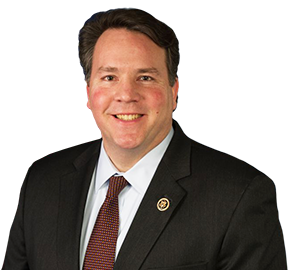U.S. House moves closer to passing the House budget
By Erin Timony
The House budget for the U.S. House of Representatives is scheduled to come to the full floor for a vote sometime next week, sources say.
The House Budget Committee released the budget earlier this week and it has successfully passed out of committee.
Rep. Alex Mooney, R-W.Va, the only West Virginia representative on the budget committee, proposed three specific items that are included in the House budget.
The items are de-funding new stream buffer regulations, de-funding new Environmental Protection Agency ozone standard regulations and de-funding the Legal Services Corporation.
In a press release, Mooney said, “As a freshman member of the House Budget Committee, I worked to deliver on West Virginia priorities, balance the federal budget and reduce the size and scope of an overreaching federal government. The President and his radical allies are intent on killing coal with new overreaching stream buffer and ozone standard regulations. Stopping new regulatory overreach from this administration is good policy for all hard-working taxpayers in West Virginia and my proposals included in the House budget will protect tens of thousands of coal jobs in West Virginia.”
According to information contained in the press release, the proposed stream buffer zone rule would “essentially ban mining operations within 100 feet of anything the EPA defines as a ‘stream’ and cause 45 percent to 79 percent of the coal reserves in Appalachia to no longer be recoverable.”
When it comes to potential direct mining job losses, the statement said it is expected to be between 55,120 and 79,870, mostly in the Appalachian region.
With coal comprising 90 percent of the Mountain State’s energy source, communications director for Mooney, Jon Conradi, said not taking action against EPA could result in higher energy prices and would cripple the tax revenue generated by coal. If the new ozone standards were to go into effect as planned, the Mountain State would lose an estimated 10,658 jobs per year, will cost the average household $1,570 in lost income and the state of West Virginia $17 billion in gross state product by 2040, the release states.
Conradi said House Democrats on the Budget Committee were not opposing Mooney’s proposals with any amendments during markup.
However, it is also expected that the U.S. Senate will pass their own budget and a conference committee will be established to reconcile the two.
Communications Director for Rep. David McKinley, R-W.Va., said the budget is still being worked out with final touches and that “we’ll review before Rep. McKinley votes.”

